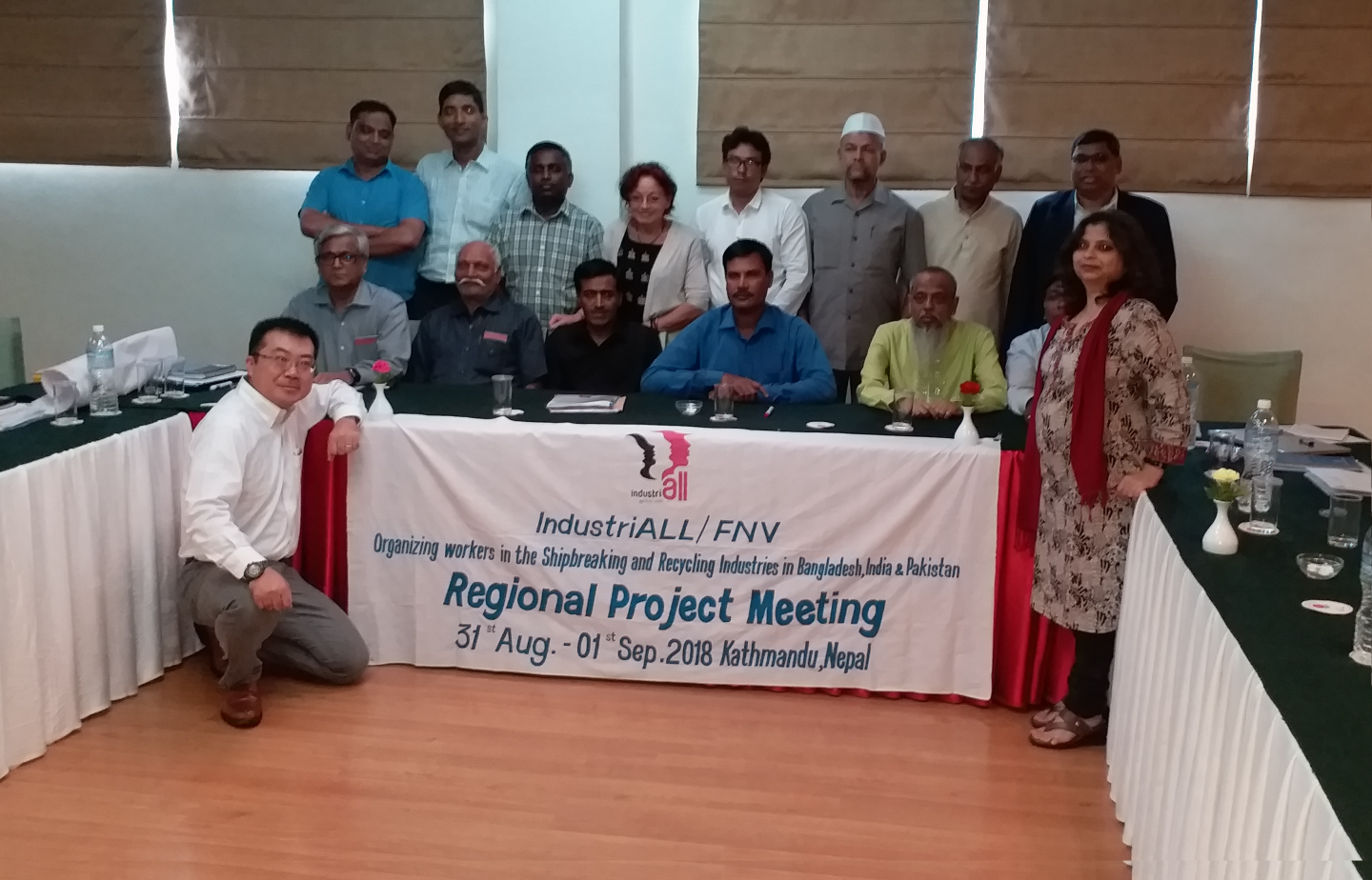Read this article in:
English
5 September, 2018IndustriALL Global Union affiliates from India, Pakistan and Bangladesh met to coordinate their campaigns for the rights of shipbreaking workers on 31 August and 1 September in Kathmandu, Nepal.
The meeting was held as part of a joint IndustriALL and FNV project to organize workers in shipbreaking and recycling in the region. The Bangladesh Metalworkers’ Federation and the Bangladesh Metal, Chemical, Garments and Tailors Workers Federation, the National Trade Union Federation in Pakistan and the Steel, Metal and Engineering Workers' Federation of India shared their experiences of organizing and forming unions. Despite the hostile environment, 30,000 workers have been organized in shipyards and downstream industries.
The unions collectively raise the issues of shipbreaking workers, demanding standard working hours, minimum wages, the supply of safe drinking water, an end to night-time work, medical treatment for accidents and proper compensation for deaths and permanent disabilities caused by accidents. Shipbreaking is the world’s most hazardous jobs, with manifold exploitation. Hostile working conditions, accidents, including fatal ones, and union busting are rampant in these workplaces.
Unions discussed intensifying the campaign to ratify the Hong Kong Convention. The Convention, adopted in 2009, provides regulations to ensure that ship recycling does not pose an unnecessary risk to human health, safety or the environment. Over the past year, IndustriALL affiliates in India, Bangladesh and Pakistan have conducted effective workshops and meetings on the Convention with representatives from all major stakeholders, including employers, government and NGOs.
Atle Høie, IndustriALL assistant general secretary, said:
“Shipbreaking is a horrific business, and unions are the only power that can change it. Ship owners have made a fortune in the active lifetime of the ships just to leave them on the beaches of India, Pakistan and Bangladesh for dismantlement.
“They use all means to avoid responsibility, and this has to be stopped. Getting the Hong Kong Convention ratified will be a major step in the right direction, but it can never replace good trade union work on the sites. Therefore, we have to continue our work with our affiliates in these countries to ensure that the most exploited workers in the world have a collective voice and are able to stand up for themselves.”
The meeting discussed ship recycling laws. A law was passed in 2018 by the parliament of Bangladesh. In India, a law was passed in 2013 and amended in 2018. In Pakistan the law is still in draft form, and unions hope it will be passed soon. Unions discussed how to make these laws more effective in safeguarding the rights and lives of shipbreaking workers.
Kan Matsuzaki, director for Shipbuilding and Shipbreaking at IndustriALL, stated:
“The volume of shipbreaking will triple in the next 25-30 years, and we will see more and more workers coming into shipbreaking yards. We need to accelerate our organizing drive through this important project.”
Apoorva Kaiwar, South Asia regional secretary for IndustriALL said:
“South Asia is very important in shipbreaking and we are working with our affiliates in all three countries to strengthen them, so that they can work towards bettering safety and working conditions of shipbreaking workers.”
At the end of the meeting, unions reaffirmed their pledge to make the industry safer by intensifying organizing and union building.







